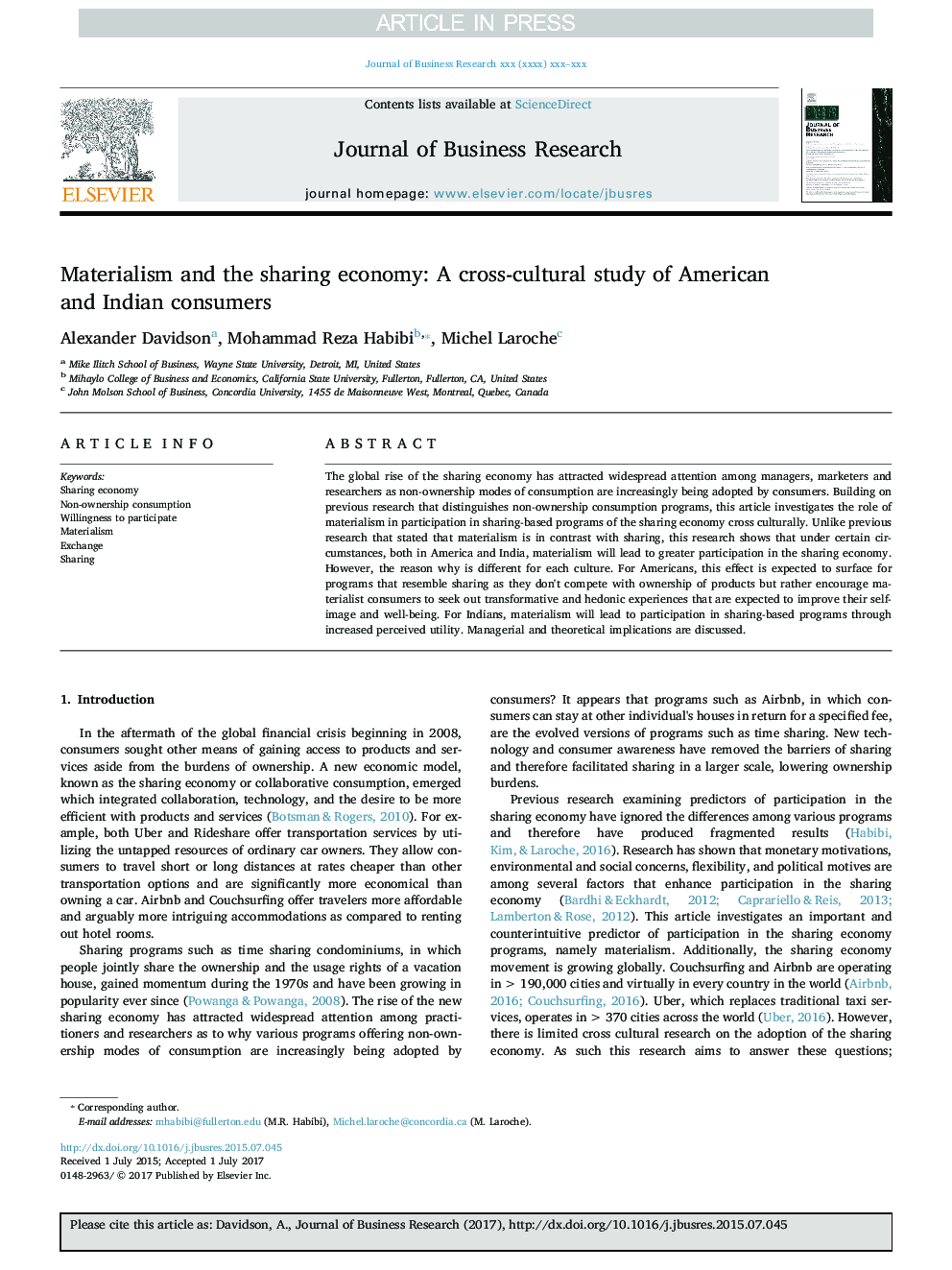| Article ID | Journal | Published Year | Pages | File Type |
|---|---|---|---|---|
| 7425583 | Journal of Business Research | 2018 | 9 Pages |
Abstract
The global rise of the sharing economy has attracted widespread attention among managers, marketers and researchers as non-ownership modes of consumption are increasingly being adopted by consumers. Building on previous research that distinguishes non-ownership consumption programs, this article investigates the role of materialism in participation in sharing-based programs of the sharing economy cross culturally. Unlike previous research that stated that materialism is in contrast with sharing, this research shows that under certain circumstances, both in America and India, materialism will lead to greater participation in the sharing economy. However, the reason why is different for each culture. For Americans, this effect is expected to surface for programs that resemble sharing as they don't compete with ownership of products but rather encourage materialist consumers to seek out transformative and hedonic experiences that are expected to improve their self-image and well-being. For Indians, materialism will lead to participation in sharing-based programs through increased perceived utility. Managerial and theoretical implications are discussed.
Related Topics
Social Sciences and Humanities
Business, Management and Accounting
Business and International Management
Authors
Alexander Davidson, Mohammad Reza Habibi, Michel Laroche,
